#maven
An Experiment in Error? Maven Bites the Dust, GM Lauds 'Insights' Gained
The great General Motors ride-sharing experiment is over. At least for now. Maven, which hit parking lots in 2016 and eventually expanded into the nation’s driveways, was GM’s attempt to put its vehicles to work, rather than sell them to retail or fleet customers like some kind of dinosaur.
For a fee, users could access the GM-owned fleet of Maven products to perform random driving tasks. Short trips, mainly, in the absence of an Uber or Lyft ride or participation in a more formal car-sharing agreement. Tap that app, find the car, unlock it, and drive off. Abandon somewhere after you’re done.
Well, that’s what GM just did with Maven.
GM's Maven Packs Up, Leaves Town(s)
Anyone following the saga of Uber and Lyft know that mobility services are not — not yet, anyway — a money tree that bears unlimited financial fruit. The same can be said of mobility services offered by automakers.
General Motors’ car-sharing service, Maven, like those more well-known companies, is still a fledgling operation experiencing growing pains. Its latest growth move involves shrinking, with the mobility brand dropping out of eight U.S. markets.
GM Finds a New Boss for Maven
Rather than look outside the company for some Silicon Valley-reared go-getter, General Motors sourced its new Maven boss from within. The automaker’s mobility brand was left leaderless following the unexpected January departure of Julia Steyn, who led the brand since its 2016 inception.
Into Steyn’s shoes steps Sigal Cordeiro, a 19-year GM veteran who most recently served as executive director of global product marketing for the automaker’s overseas GEM platform — a vehicle architecture intended to help GM grow its presence in emerging markets. Cordeiro now must guide Maven through its growing pains, ultimately taking it … somewhere.
Maven Boss Out at GM, Reports Claim
Julia Steyn, head of General Motors’ Maven mobility brand, is reportedly leaving the company. Stayn joined GM in 2012, starting out as the automaker’s vice president of corporate development and global mergers and acquisitions, then switching to the company’s urban mobility unit and Maven three years ago.
Maven, if you’re not aware, is a GM-owned car-sharing service that underwent an expansion last year, allowing owners of newer GM cars to rent out their vehicles to eligible users. The mobility experiment will have to continue with someone else at the helm.
GM's Eyeing Your Tool Shed, Not Just Your Garage, for Revenue
If you’re a GM owner in one of three American cities, you’re already able to put your vehicle on the short-term rental market. Now, imagine if you could do the same for your lawnmower. And that kid of yours hardly ever uses his skateboard anymore. What about those rollerblades you picked up in 1992 but mothballed due to the stigma? Everything’s a possibility in this age of micro-mobility and peer-to-peer sharing.
General Motors’ Maven mobility arm, which started off renting company-owned vehicles to cash-strapped taxi haters before launching a pilot with privately-owned cars and trucks, now has its eye on your yard care appliances — and who knows what else.
Trademark Foreshadows Launch of GM Subscription Service 'DriveScription'
While we’ve bashed them for being one of the most expensive ways to acquire a vehicle, automotive subscription plans have becoming increasingly popular among premium nameplates. General Motors already has one exclusively for Cadillac but it appears that it’s setting up another for its less illustrious brands.
Late last month, the automaker filed a trademark application to register the name “DriveScription” with the United States Patent and Trademark Office. The document clearly states that the term will be used in association with the Goods and Services categories of automotive subscription services, rental services, and vehicle sharing. Considering that Maven already handles most of the short-term rental and ride-sharing aspects of GM’s new mobility services, DriveScription is almost certain to be the mainstream equivalent to Book by Cadillac.
Maven's 'Peer Cars': Your Mobility Future Is Someone Else's Ride
A pilot project we discussed months ago is now up and running in Detroit, Ann Arbor, and Chicago. Launched by General Motors’ Maven ride-sharing arm, the new peer-to-peer service goes beyond the existing fleet of GM-owned vehicles (which Maven users can rent for varying periods) and into the realm of the privately-owned car.
Yes, there’s owners who are now letting their car work for them.
GM Preparing to Rent Your Car: Report
Only if you choose to, it seems. After launching its Maven ride-sharing service in numerous U.S. cities, as well as Canada’s largest population center, sources claim General Motors wants to expand the service to privately owned vehicles.
In other words, you’ll be able to make your own GM car available via the automaker’s app-based Maven service, generate income from short-term renters, while GM takes part of the cut. If the plan goes ahead, let’s hope your renters aren’t as slovenly as these ones.
Rental Review - Mishaps With Maven
General Motors launched its Maven rideshare service in 2016 with the goal of providing renters with a taste of its vehicles, while also bringing in a little extra revenue. The service offers a wide array of vehicles ranging from small hatchbacks like the Chevrolet Spark to large SUVs like the Tahoe.
The service is available in many larger cities across the country and, since I was visiting Detroit for the auto show, I decided to give it a try to see what a potential renter might encounter. I signed up for the app and rented a couple of vehicles without notifying GM in order to experience the vehicles just as the general public would.
The vehicles were far worse than I expected.
Self-driving Taxis Will Become the Most Disgusting Spaces on Earth
With the entire automotive industry looking toward a future of driverless mobility, commercially owned self-driving taxis seem poised to be on the frontline of tomorrow. However, nobody seemed to realize that these vehicles will eventually become little more than mobile toilets.
Animals are universally disgusting and humans are no exception. While we’ve mastered land, air, and sea, consider the spaces we occupy while we traverse those expanses. Rental cars are returned filled with candy wrappers, spilt soda, and human hair. Uber vehicles are routinely vomited in. The subway is a haven for disease. Airplane interiors experience havoc within the first hour of a flight as the worst of us begin defecating into the seats, too lazy and weak to control ourselves.
Autonomous taxis aren’t likely to endure better treatment. Without a driver present, the urge to have drunken sex will be far too strong — and those odds only increase when you add a second occupant to the equation. With nobody watching, we’ll leave half-consumed hamburgers and cans of sweetened tea on their floors that will roll around and turn the carpet into a sticky magnet for larger pieces of garbage.
In With the Good Sales, Out With the Bad: GM Plans to Further Shrink Fleet Sales
General Motors has decided to further shrink its outgoing fleet of rental vehicles to prioritize its in-house vehicle lending service, Maven, and focus on getting newer cars to customers. That does mean building fewer vehicles overall, but GM shouldn’t care if it can keep raking in the profits — something rental fleets aren’t particularly good at in lower volumes, unless you’re the one charging a daily rate.
Alan Batey, president of GM’s North American operations, claims sales to rental fleets should drop by about 50,000 units this year and an undisclosed amount in 2018. It follows the company’s trend to scale back fleet sales in general. Big businesses accounted for 16.1 percent of its total U.S. sales in 2014, but that was reduced to 11.7 percent in 2016.
General Motors Embraces Underemployment With Maven Gig
Car sharing is one of the cornerstones of automakers’ newfound focus on mobility solutions. It’s a brave new world for vehicle manufacturers, but it’s also a brave new world for consumers. With roughly 22 million American’s underemployed — that’s people with jobs that don’t provide adequate income, full-time hours, or exist outside the hire’s experience/education — many people have taken on part-time work to fill in the gaps.
Taking advantage of this unique workforce, Maven, General Motors’ mobility arm, is launching Maven Gig, providing part-timers with weekly access to its fleet of Bolt EVs. Gig functions similarly to Maven City and GM’s Express Drive partnership with Lyft, but is specifically designed for renters who don’t own a vehicle and might want to spend a week delivering pizza or working for a ride-hailing service on an extremely limited basis.
An interesting idea, but a bit of an odd duck at $229 a week. GM is pitching it as a way to “enable freelancers to earn income through multiple sources.”
GM's Maven Reserve: Book a Tahoe for the Same Price as an Escalade or CTS-V
As urban populations grow and analysts continue to predict dwindling car ownership, alternatives have sprung up and automakers are gradually getting in on that sweet car-sharing action. Currently active in 17 North American cities, General Motors’ hourly ride-sharing unit Maven has been building slowly.
GM is now expanding Maven to include long-term rentals which, come to think of it, sounds identical to what it was doing with its Book by Cadillac premium subscription service. While the Caddy offering is intended to be a monthly subscription serving as an alternative to normal vehicle ownership, nothing is really stopping customers from using “Maven Reserve” in a similar manner.
Also similar is the pricing. While the special Maven Reserve vehicles don’t yet encompass all GM’s fleet, a Chevrolet Tahoe runs $1,500 for 28 days, which is identical to the subscription fee for Cadillac Book, which also includes curbside car delivery and mid-month vehicle swapping.
In essence, GM is allowing you to have simultaneous access to a CTS-V and Escalade or a Tahoe for the same amount of money.
GM's Maven is a Sneaky Way to Get Urban Millennials to Try the Company's Vehicles
While Ford is currently the domestic automaker making the biggest push into in mobility services — which seem to entail practically anything outside of traditional manufacturing and distribution — it isn’t the only company preparing itself for an era of declining vehicle ownership. FCA has partnered with Waymo to develop a fleet of self-driving Pacificas and General Motors has a personal mobility brand, called Maven, that acts as a car-sharing service.
While it isn’t quite so technologically advanced as autonomous vehicles or automotive A.I., Maven provides additional revenue immediately and furnishes GM with a unique opportunity to cope with some of the ownership problems of tomorrow. Car-sharing is good way for GM to profit from people who don’t own cars, but it’s also a clever method of getting young urban drivers to spend money on becoming more familiar with their product — especially on the coasts where import brands tend to outsell their domestic counterparts.
TTAC News Round-up: Let's Get Political, Political; Maven is Here; Ignition Lawsuit Changes Direction
President Barack Obama ran a victory lap in Detroit because the bailout worked.
That, GM’s Maven goes beyond “The Tipping Point,” the ignition switch trial takes a turn for the weird, and more Obama … after the break!



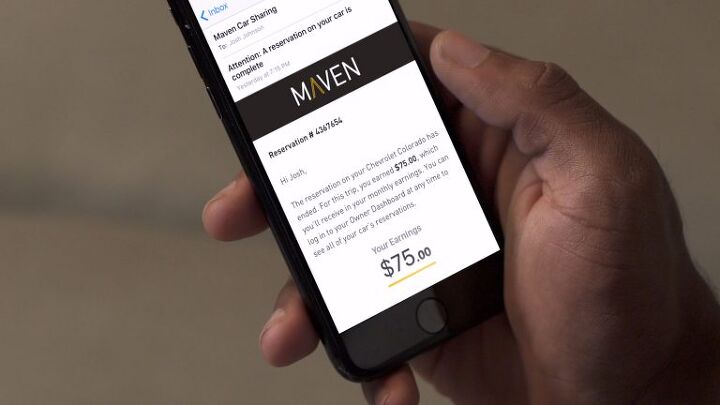
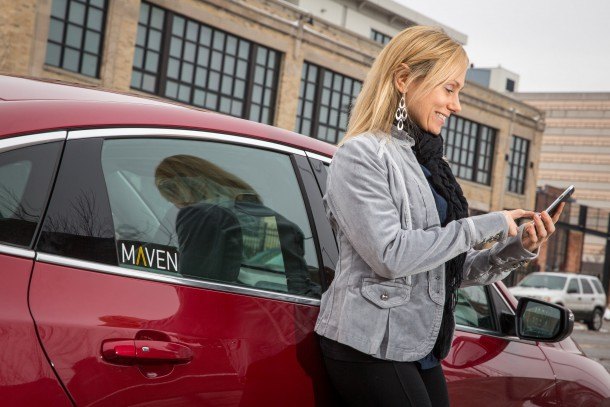
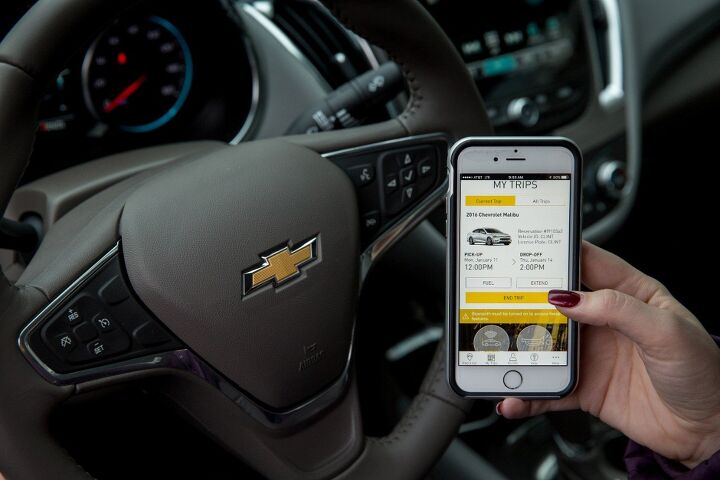



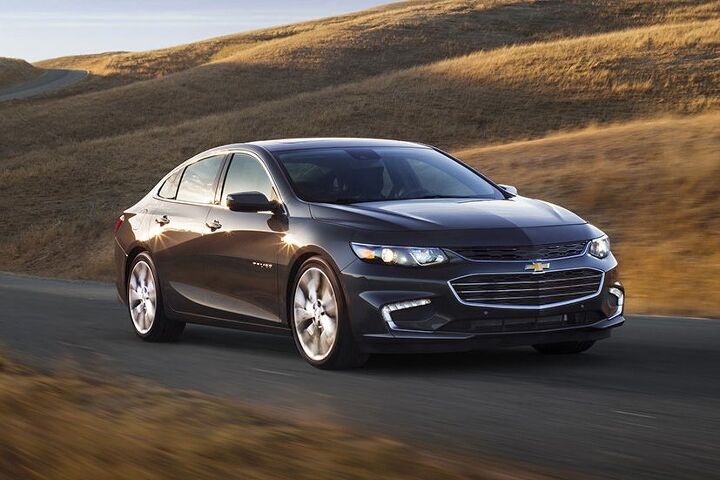

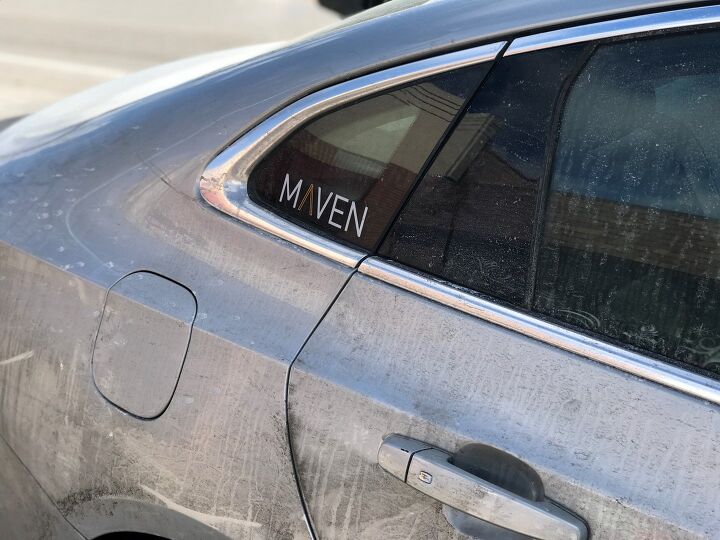



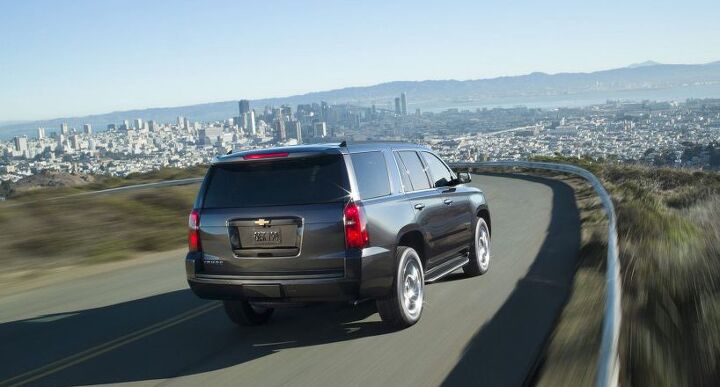














Recent Comments